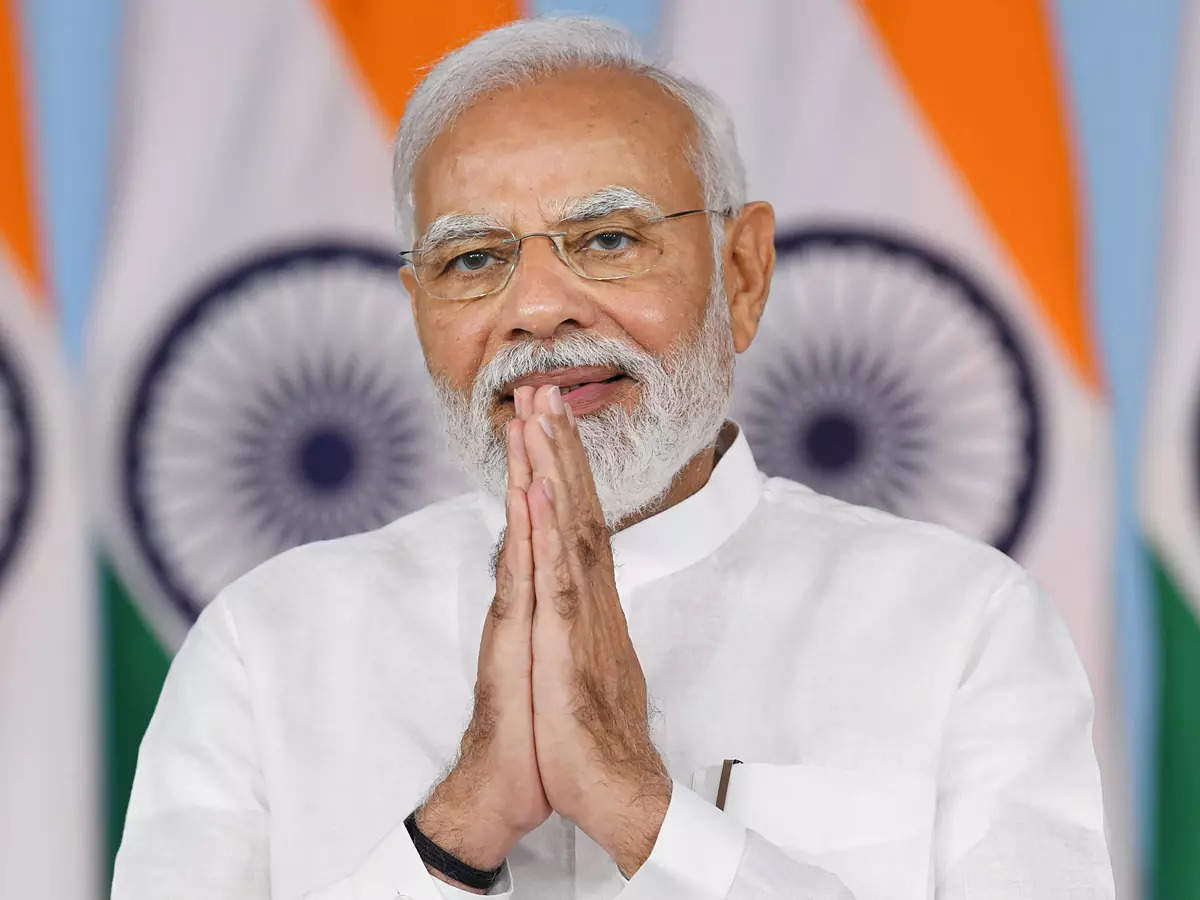


On 12 November, a video went viral on social media wherein Congress senior leader and Rajya Sabha MP Madhusudan Mistry was seen making a derogatory remark against Prime Minister Narendra Modi, ‘Aap mujse puchhate hai to main to kahunga ki ye Narendra Modi ki aukat batayenge.’ When a journalist in Ahmedabad questioned him about the Congress party’s manifesto promise to rename the Narendra Modi Stadium in Ahmedabad to Sardar Patel Stadium, Mistry had replied like this.
Referring to Mistry’s remark, the PM responded while addressing a rally in Surendranagar, “You are all royal families, but I am from a normal family. I have no aukat. I am a sevak and sevadar, and sevak and sevadar have no aukat. In the past, the Congress had used words like ‘neech aadmi’, ‘maut ka saudagar’ and ‘naali ka keeda’ for me. I urge you to talk about development instead of playing this game of aukat.” BJP also condemned Mistry’s remark and stated that such an insult to the PM by a Congress leader would be met with a strong response from the people.
Since then, a question is being asked in the political circle that whether this derogatory remark by a congress leader against an immensely popular leader and PM Narendra Modi will help BJP in the assembly election as in the past? To know right answer, we need to have a look at the prevailing political atmosphere. Elections are not known to be decided by a remark, but an intense debate on the topic can certainly influence or instigate a voter’s mind.
Sonia Gandhi’s ‘maut ka saudagar’ jibe in the 2007 assembly election might have played a big role, a clean sweep for the BJP. Modi during his five years of tenure had united Gujaratis on ‘Gujarati Asmita’ and ran his government on a development agenda without surrendering before the communal propaganda after 2002 riots. People’s mindset was molded by the feeling of ‘Center’s injustice to Gujarat’ in all welfare schemes. Modi has his own style of aggressive campaigning, raising Gujarati pride and converting it into political gain. However, the description ‘maut ka saudagar’ was a mistake that was shrewdly exploited by BJP with serious consequences for congress’s determined challenge.
The same way, Mani Shankar Aiyar’s twin statements in 2017, headlined by TV channels with prime time debates, had also helped Narendra Modi to get the political benefits to win the assembly election. Aiyar’s statement ‘Mujhko lagta hai ki ye aadmi bahut neech kisam ka aadmi hai, isme koi sabhyata nahi hai, aur aise mauke par is kisam ki gandi rajniti karne ki kya avashyakta hai?’ was strongly objected by the BJP.
Not only that, after realising the mistake of insulting Narendra Modi in 2012, the Congress had suspended him from the party without any delay. Rahul Gandhi as working president of the party also wrote publically on twitter: “BJP and PM routinely use filthy language to attack Congress party. Congress has a different culture and heritage. I do not appreciate the tone and language used by Mr Mani Shankar Aiyar to address the PM. Both the Congress and I expect him to apologize for what he said.” But the damage was done. Late in that evening, PM lashed out at the Congress saying the comments were a sign of ‘Mughlai mindset’. This ‘Mughlai mindset’ sees everyone but princess as ‘neech’. Again the BJP had an opportunity to exploit the sentiments of angry voters.
Can the BJP exploit the same in this elections too? No, it cannot as the political scenario is different this time. The congress has not been in power at the Centre since 2014. BJP has been ruling party in Gujarat since 2002. As the anti-incumbency is in full force, it is very difficult for the BJP to take advantage of ‘aukat’ remarks and gain voters’ sympathy. There is not much ‘anger’ against the Congress for ‘aukat’ comments. So, it cannot be exploited like in the past.
Moreover, the BJP’s strategy on exploitation of voters’ sentiments is exposed to great extent. After two decades of experiences, the voters have realised that hue and cry over such comment is nothing but a ‘gameplan’.
Another important point is that derogatory remarks against individuals, rude remarks about women, threatening and hateful statements have become very common in our polity. There was a time when in public life, moderation and modesty in speech and behaviour were important. Nowadays, political environment is polluted by many leaders, and in this respect all parties are more or less same. It seems not a day, or a week goes by without any nasty utterances—be it about spreading hatred or passing comments against political opponents.
Massive expansion of social media and its usages by politicians have only amplified this disturbing trend. The use of hateful and divisive language by high-ranking politicians had increased almost 500% between 2009 and 2018, an NDTV data collection exercise had found. Based on what they found, there had been 124 instances of VIP hate speech by 45 politicians, compared to 21 instances under UPA 2, an increase of 490%. In 2022, the situation may have worsened further.
So people do not really get excited with such comments that are made here and there, and many simply don’t take them seriously. This is the reason why the PM and the BJP are not aggressive and enthusiastic to bank upon the derogatory remark ‘aukat’.
Sudhir S. Raval is a veteran journalist and columnist from Gujarat and Consulting Editor with iTV Network, New Delhi.